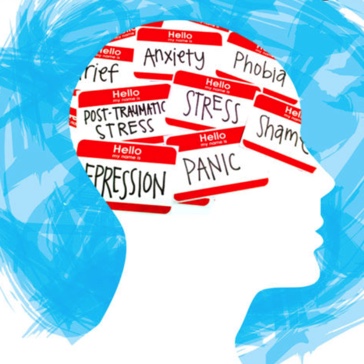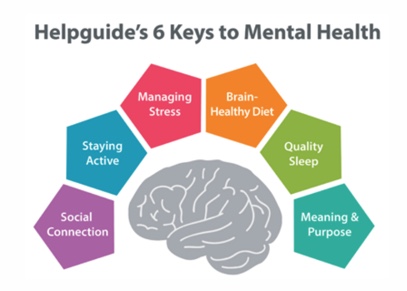Preventing Mental Illness in Youth

With the rise of the pandemic, depression and anxiety rates are at an all-time high. According to a study conducted by the University of Calgary, the number of children and adolescents with depression or anxiety doubled since the pandemic began. Children growing up during the pandemic are experiencing the brunt of the impact due to them being raised in a world of separation during the most critical part of early brain development. Additionally, it is not only the pandemic that has contributed to poor mental health over recent years—stigma, a lack of investment in mental health care, cultural and societal norms, and more have contributed. The rise in poor mental health, especially among youth, raises the question of what can be done at a young age to prevent mental/emotional disorders as they grow older. Early childhood development is crucial for the development of the brain, so it is imperative that steps be taken to ensure healthy mental and physical development.
 First and foremost, it is important to know the factors beyond the pandemic causing mental health to become a prevalent issue. First is the lack of investment in mental health. According to an article from Harvard University’s Global Health Institute, poor mental health is the leading cause of disability globally. Additionally, the article states that “less than 1% of national health budgets are spent on mental health.” With mental health being so prevalent in this age, funding for mental health care is needed to support those with poor mental health. Not only is the government’s lack of investment escalating the issue of mental health, but students’ inability to find help when they suffer from these illnesses can originate in everyday conversations through today’s societal stigma. The stigma consists of societal marginalization of those with poor mental health or for those seeking help. Stereotypes around mental health exist, like a common stereotype for those with poor mental health is that they can be violent or a danger to others. A very small portion of those with poor mental health commit violent acts. They are actually more vulnerable than dangerous, as they are ten times more likely to be a victim of crime. Societal norms and values also make mental health a hard topic to talk about for some people. These are just a few of the reasons why mental health is such a prevalent issue today; with the avoidance of mental health concerns and the growth of the mental health crisis.
First and foremost, it is important to know the factors beyond the pandemic causing mental health to become a prevalent issue. First is the lack of investment in mental health. According to an article from Harvard University’s Global Health Institute, poor mental health is the leading cause of disability globally. Additionally, the article states that “less than 1% of national health budgets are spent on mental health.” With mental health being so prevalent in this age, funding for mental health care is needed to support those with poor mental health. Not only is the government’s lack of investment escalating the issue of mental health, but students’ inability to find help when they suffer from these illnesses can originate in everyday conversations through today’s societal stigma. The stigma consists of societal marginalization of those with poor mental health or for those seeking help. Stereotypes around mental health exist, like a common stereotype for those with poor mental health is that they can be violent or a danger to others. A very small portion of those with poor mental health commit violent acts. They are actually more vulnerable than dangerous, as they are ten times more likely to be a victim of crime. Societal norms and values also make mental health a hard topic to talk about for some people. These are just a few of the reasons why mental health is such a prevalent issue today; with the avoidance of mental health concerns and the growth of the mental health crisis.
Seventy-five percent of mental and emotional disorders develop starting at the early 20s. Therefore, it is important that healthy mental development is cared for starting at a young age. Parents should start paying attention to early warning signs of mental disorders like depression, anxiety, or ADHD. Symptoms include withdrawal from social activity with friends and family, difficulty concentrating, or getting easily confused or distracted, extreme mood changes, changes in eating habits, anger or irritability, physical pain, and more. While these symptoms sound like obvious signs of mental disorders, they can easily be overlooked as a temporary disruption or simply as a part of growing up. Mental illnesses also may not show obvious symptoms, and because many mental illnesses remain if left untreated, it can lead to larger problems down the road like the mental illness worsening or even suicide.
Many people who experience signs of mental illness do not seek help out of fear, or simply because they are not aware that they are experiencing a mental illness, like depression. As soon as warning signs are shown, they should see a mental health professional or a primary care physician. For children, this means their parents taking them to a mental health professional or a pediatrician. Most mental illnesses do not resolve with time and often worsen instead. Noticing the signs early on and seeking help are crucial to ensure mental and physical wellbeing.
are experiencing a mental illness, like depression. As soon as warning signs are shown, they should see a mental health professional or a primary care physician. For children, this means their parents taking them to a mental health professional or a pediatrician. Most mental illnesses do not resolve with time and often worsen instead. Noticing the signs early on and seeking help are crucial to ensure mental and physical wellbeing.
It is clear that mental health is an issue that needs to be talked about more amongst parents raising their children and also the general public. From the stigma to the lack of mental health care funding, mental health is a very prevalent issue in today’s society. Many people are not aware that they, or their children, have an issue because they don’t know the signs. For those that do, they often do not seek help out of fear. Mental health is just as important as physical health and deserves the same attention and care.

Cody is a senior and is actively involved in Keynote, NHS, Robotics, and Yearbook. He is the co-editor of Yearbook in addition to being Co-Editor...
